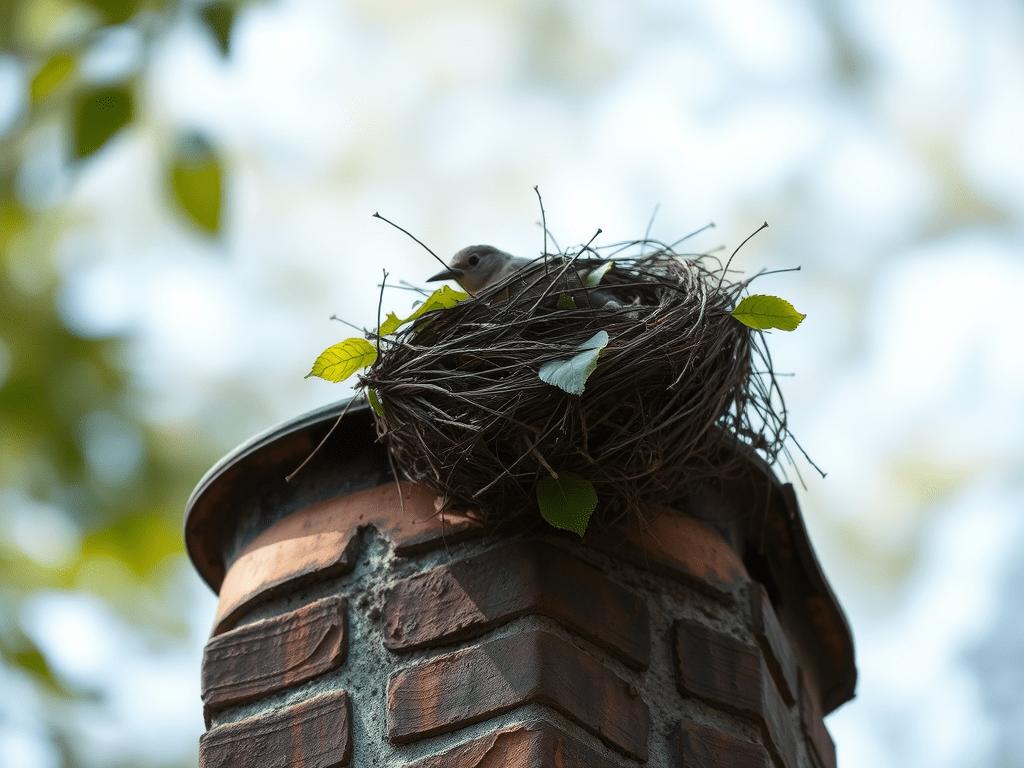While gas fireplaces may seem like a low-maintenance alternative to traditional wood-burning fireplaces, regular maintenance—including chimney sweeping—is still essential for ensuring your safety and the longevity of your unit. Many homeowners are under the impression that gas fireplaces don’t require the same level of care, but that’s simply not the case. In this article, we’ll explore why it’s crucial to have your gas fireplace swept, backed by insights from fire safety organizations and professionals in the industry.

The Importance of Sweeping a Gas Fireplace
While gas fireplaces don’t produce the same creosote buildup as wood-burning fireplaces, they can still accumulate debris and blockages over time. Here’s why sweeping is essential:
Corrosion: Gas fireplace flues and venting systems are susceptible to corrosion, particularly if condensation mixes with the byproducts of combustion. Regular inspections and sweeping can identify and prevent this issue before it escalates.
Debris and Bird Nests: Chimneys, even for gas fireplaces, can become blocked by leaves, bird nests, and other debris. These obstructions can prevent harmful gases like carbon monoxide from properly venting outside, leading to potential health risks.
Soot Buildup: Gas fireplaces, especially those using natural gas or propane, can still produce soot. Over time, this soot can accumulate inside the chimney, causing reduced efficiency and even posing a fire hazard.
How Often Should a Gas Fireplace Be Swept?
According to the National Fire Protection Association (NFPA), all chimneys and fireplaces should be inspected at least once a year, regardless of whether they burn wood, gas, or oil. A certified chimney sweep will evaluate the chimney’s condition, clean out any debris, and ensure that it’s free of hazards. This yearly inspection is critical for identifying potential issues before they turn into dangerous situations.
The Chimney Safety Institute of America (CSIA) also advises annual maintenance for gas fireplaces to prevent the risk of blockages or gas leaks, ensuring the unit is safe and efficient to use. They recommend homeowners be vigilant about any signs of damage, including odd smells, unusual flame colors, or difficulty in lighting the fireplace.
What Does a Professional Chimney Sweep Do?
A professional chimney sweep will carry out several tasks during an inspection and cleaning for gas fireplaces:
- Inspect the Chimney Liner: The liner protects your home from the heat and gases generated by the fireplace. Sweeps will check for any signs of damage, such as cracks or corrosion.
- Clear the Venting System: Whether your gas fireplace vents through a chimney or a direct vent system, professionals will ensure it is clear of any blockages.
- Clean and Adjust Components: During an inspection, the pilot light, gas valve, and other parts of the fireplace may also need cleaning or adjusting to ensure optimal performance.
Safety First: Carbon Monoxide and Gas Fireplaces
One of the most important reasons to sweep and maintain your gas fireplace is to protect against carbon monoxide (CO) buildup. Since CO is colorless and odorless, it can be deadly without detection. Proper ventilation and annual sweeping can prevent CO from seeping into your living space. As a precaution, the Environmental Protection Agency (EPA) also recommends installing carbon monoxide detectors in homes with gas fireplaces to provide an extra layer of protection.
Final Thoughts
Although gas fireplaces are often considered “cleaner” than wood-burning alternatives, they still need regular care, including sweeping and inspections. Maintaining your gas fireplace through professional cleaning not only ensures a safe living environment but also extends the life of your appliance.
Make sure to schedule an annual inspection with a certified chimney sweep to keep your fireplace operating safely and efficiently year after year.

